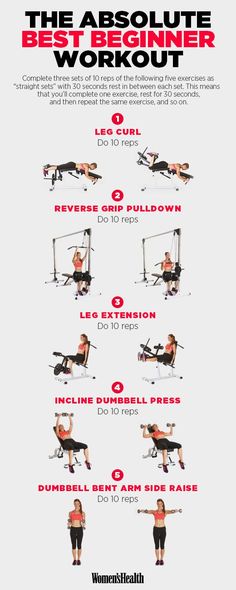
Personal trainers generally earn a 50/50 percentage of the fees that they collect from their clients. In a typical hour-long session, personal trainers can earn up to $30. The gym keeps half. However, it's important to note that the money you make as a personal trainer needs to be taxable. Therefore, you should always claim your income from your clients for taxes.
Retirement Savings Plan 401(k).
Self-employed personal trainers have a wonderful option: a 401k retirement savings plan. Although this account is not as flexible as a Traditional IRA it does offer some benefits. The personal trainer can contribute a greater portion of his or her self-employment income. As a result, your contributions will be tax-deferred for many years. However, any withdrawals will be treated as normal income.
A fitness professional making $50,000 per year may be eligible to contribute 10% of that income to a retirement plan. If they are able to teach 35 sessions per week at $28, $500 could be contributed each year to the plan. In ten years they could have $5,500. This money will grow indefinitely tax-free until retirement so they can retire with peace and security.

Hourly rate
The type of service a personal trainer provides can affect how much an hourly rate for a personal trainer. Some trainers bill by the minute while others charge by hour. The average hourly rate for a consultation is between $40-$50. Your reputation, the type of consultation and how many clients are involved will affect your hourly rate. For some trainers, they may get up to nine consultation calls per week. For $50 per consultation, you can expect to earn $23,400 a year.
You may be able to start your career in the fitness industry at a lower hourly wage if you're new. This may not be the best option for a startup, but it will allow you to gain some experience. Personal trainers begin at $60 an hr. There are however a few exceptions who earn more than $400 per hour. Before you set an hourly rate, decide how much you would like to take home each year. A personal trainer typically makes $50,000 annually, but it's possible to make more.
Commissions
Personal trainer commissions can vary depending on the job. The commissions for personal trainers can vary depending on the position. One-on-one sessions might be more lucrative than group classes, while another trainer may make more. A personal trainer's commission may also be higher if he or she works at a gym and helps promote its memberships.
Personal trainers make between thirty and sixty percent of the cost of client sessions, depending on their experience and education. A few gyms offer incentive programs if the personal coach completes a certain number sessions. An hourly commission averages between $13 to $20.

Percentage profit
The percentage of profits that personal trainers get paid is dependent on the nature of their business. 20% of the revenue is used for overhead costs, such as salaries of managers and rent or electricity. Marketing expenses, as well as monthly expenses, may also be included. You can also earn more by being a spokesperson for one company.
Taxes
Personal trainers can get paid in two ways. The first is through a gym agreement. This contract allows the gym to pay trainers for use of its facilities as well as referral clients. Another option is to work on your own. This model is the most common and is very flexible. Although a gym can employ several trainers to help clients, they prefer to work with an experienced trainer.
A person who works for a gym will receive a higher hourly rate than an independent contractor. They may also be eligible for a higher co-payment on their health insurance than self-employed individuals. A 401 (k) retirement savings program may also be available for salaried personal training employees. Your employer may match the amount you set aside for retirement under the 401(k).
FAQ
Why is physical exercise important?
Fitness is crucial for our health. We must exercise regularly to maintain our weight, strength, flexibility, and cardiovascular system. Exercise helps you sleep better at night, reduces stress and improves self-esteem. It also increases your energy throughout the day.
What happens if I don’t get enough sleep?
You can't get enough sleep and your brain will not be able to regulate hormones and chemicals responsible for controlling appetite and metabolism. As a result, you may overeat and gain weight. Sleep deprivation can also lead to excessive weight gain.
Are there any exercise I shouldn’t do?
You should always consult with your doctor before starting any new workout routine. Some people are unable to exercise due to injuries. Certain activities require special equipment and training. Swimming requires you to have a swimsuit and access to the pool.
Which Is Most Important: Diet, Exercise, or Sleep?
This depends on what you're trying to achieve. It is important to lose weight. Exercise is important for building muscle mass. The last factor is sleep, which only impacts how well you perform during your day.
Is it possible for one to be too thin?
Yes! Both being underweight or suffering from an eating disorder is unhealthy. It isn't normal to be smaller than your recommended height. Also, you may feel dizzy, tired, or weak.
What are cardio exercises?
Cardiovascular exercise is any activity that requires your heart and lung to work harder than normal. These include swimming, running, bicycling or rowing. These activities are great for burning fat and increasing metabolism. These activities can help you keep fit and strengthen your heart.
Statistics
- In 2018, the World Health Assembly agreed on a global target to reduce physical inactivity by 15% by 2030 and align with the Sustainable Development Goals. (who.int)
- One study showed that adults who watch more than 4 hours of television daily had an 80% higher risk of death from cardiovascular disease. (heart.org)
- According to the Centers for Disease Control and Prevention, chronic diseases cause 7 out of 10 deaths in the U.S., and treating chronic diseases accounts for 86% of U.S. healthcare costs. (mana.md)
- In high-income countries, 26% of men and 35% of women were insufficiently physically active, as compared to 12% of men and 24% of women in low-income countries. (who.int)
External Links
How To
How to Burn Belly Fats Faster
When we are trying to lose weight, belly fat is often seen as a problem. It's actually a good thing, in fact. Your organs are protected by the fat around your stomach. Let's learn how to quickly burn belly fat.
The main factors that lead to body fat storage are stress and lack exercise. Because of its stimulation of the production hormone cortisol, stress can make us feel hungry continuously. Cortisol levels are increased by insulin. Insulin then stores excess calories as fat. The release of adrenaline from our bodies causes increased appetite. These extra calories can be broken down by exercising.
There are many methods to lose belly fat. Any one of these can be tried, depending on how much you have to spend. These are some ways to quickly lose belly fat.
-
Eat less food. Instead of eating three large meals a day, eat smaller meals. This will help you consume less calories.
-
Drink lots of water. Water flushes out toxins and keeps you hydrated. Drinking water prior to every meal will ensure that you are satisfied for longer periods of time and won't eat too much.
-
Avoid unhealthy snacks. If you're looking for quick fixes, snack foods like chips, cookies, candies, etc. might seem tempting. Avoid these unhealthy treats. They are full of empty calories, too much sugar, and can be very fattening. Choose healthier alternatives such as whole grains, vegetables, fruits, seeds, nuts and seeds.
-
At least three times per semaine, do strength training. Strength training helps build muscle mass, which means that you can burn more calories even when you are resting. It strengthens bones and muscles, ligaments, muscles, tendons, heart, lungs, as well as joints.
-
Walk or stretch regularly. Stretching can improve flexibility, mobility, and reduce back pain. Walking for 30 minutes is a great way to burn calories.
-
Reduce alcohol intake. Your diet is empty of calories, and alcohol has no nutritional content.
-
You can lose weight slowly. First, determine your current weight. Then calculate your ideal weight by adding 5% to 10% of your total body weight. Once you have established your ideal weight, reduce your daily calorie intake by 500 to 1000 calories each day until you achieve your goal.
-
Avoid processed food. These foods are high in salt, sugar, preservatives, and other harmful ingredients. Although they are convenient, processed foods don't have enough nutrients to sustain your health.
-
Don't skip breakfast! A good breakfast can improve concentration, memory, as well as energy level. You should have protein (such as eggs) and fiber (such as oats) for breakfast.
-
Have regular bowel movements. Constipation or irregularity can lead to gas and bloating. To prevent this, drink plenty of water and increase fiber intake.